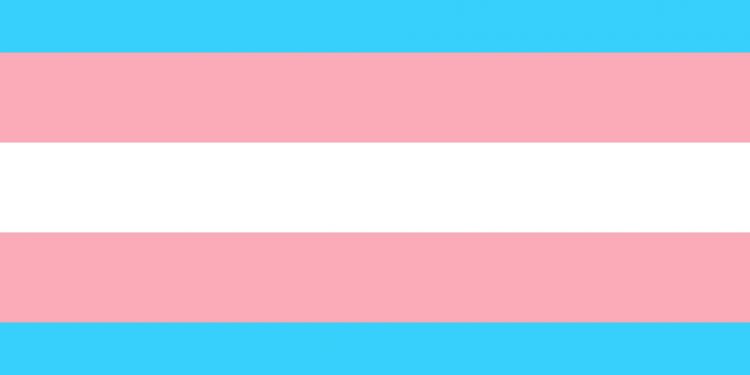The Transgender Bill: Of Dashed Hopes And Failed Expectations

Passed in the Lok Sabha in late December 2018, the Transgender Persons (Protection of Rights Bill), generated widespread backlash from the LGBTQI community. Viewing it as an assault on their very existence, the trans community has denounced the bill for its controversial positions on matters as diverse as the definition of transgender to the criminalization of those supposed to have ‘enticed’ or ‘compelled’ trans people in the act of begging or prostitution. Indeed, the very essence of the bill reflects the callous disregard with which our lawmakers view and choose to treat the trans community.
UNDERSTANDING GENDER
Gender is an individual’s social identity or role. There are countless ways in which people perform their gender. These include seemingly innocuous things like hairstyle, clothes, demeanor, professional choices, and the list goes on. Interestingly, however, gender is not freely chosen or considered to be fluid. People are invariably assigned gender based on the sex they’re determined to be, at birth. The dominant discourse views gender as a binary of female and male, even as we’ve seen slight, progressive changes in this mentality lately. In this scenario, any non-binary, trans person can face the wrath of the society for acting in a ‘deviant’ manner. It needs to be remembered that even cis people don’t fully conform to the binaries. Alternatively put, no one completely conforms to the social diktats associated with their gender. Given this, the correct way of ascertaining a person’s gender is by how the individual feels internally and chooses to identify.
We further need to understand that sex as we view today is social in nature in the sense that here too we fallaciously make a binary distinction into male and female. This dominant belief is discounted by the fact that there are more cases of intersex babies than we’d like to acknowledge. Additionally, categorization generally happens based on something as arbitrary as looking at a person’s genitalia at that time. Reducing ourselves to these binaries can be violent and invasive given how it doesn’t account for the anatomical, biological, and chromosomal variations which can occur. Moreover, it’s exceedingly difficult to entangle sex from gender. Thus, our underlying sentiment could be that a trans person might feel like a certain gender but they’ll always belong to their biologically assigned sex. It further reinforces the idea that an individual can completely identify with a certain gender only after having undergone the Sex Reassignment Surgery. This may or may not be a decision people want to take.
In essence, it’s imperative to view gender and sex as a spectrum. Unfortunately, this is what the transgender protection bills fails to do.
AN OPPRESSED COMMUNITY
Given the kind of society we live in, it takes an unfathomable amount of courage to come to terms with one’s identity as a trans person. Our heteronormative society conditions us to view sex and gender as a binary with gender expected to naturally correspond with one’s sex. Needless to say, to realize that the two don’t go together can be a source of a source of intense emotional distress for individuals. This is known as gender dysphoria. This only gets compounded by the fact that any ‘deviant’ identity can evoke a serious backlash from the community. Sadly, this backlash generally starts first within the family which is supposed to love us unconditionally and accept us for who we are. Living in a society where their identity was accepted as legitimate only as recently as 2014 owing to the SC judgment, the trans community has often had to resort to begging and prostitution for their sustenance. The 2014 judgment notwithstanding, the society continues to be hostile towards the trans people, given how many of them have been faced harassment at their respective workplaces. Saba Giri and Manabi Bandhopadhyay are just two of the many instances. If all this wasn’t enough, the provisions of the trans bill are such that they’ll end up doing more harm than good to the community.
PROBLEMS ASSOCIATED WITH THE BILL
In the Transgender bill, trans folk have been defined as people who’re neither male nor female/ both/ neither wholly male nor female. What this definition does is view gender as a binary and not a spectrum (read non-binary people) while simultaneously denying trans men or women the right to completely identify with being a male or female respectively. This goes against the idea that an individual’s gender identity is based on how they choose to identify internally. Further, to be certified as a trans person, they’re to be assessed by District Screening Committees. In addition to that, to be viewed as a male or female, they need to undergo sex reassignment surgery. These go against the idea that a person belongs to a particular gender simply because they choose to identify with it. The bill further stipulates that if a family is unable to take care of a trans person, then they need to be put in the care of a rehab center. Besides infantilizing the community, the bill ignores the fact that quite often, the family is the site of violence for trans people. It then goes on to criminalize people suspected to have ‘enticed or compelled’ trans members in the act of begging. This becomes contentious given how, in the absence of job opportunities for trans people, they often have to resort to begging or prostitution. Since it’s not always easy to determine whether a person has willfully engaged in the aforementioned acts or not, there exists room for needless harassment of the community. Importantly, while prohibiting discrimination against people from the trans community, it stops short of providing reservations for them. Reservations become imperative to put them on an equal footing with cis-gendered and ensure equality of opportunity. The bill’s discriminatory approach becomes clear with regard to the punishment it stipulates in case of sexual assault of trans people. Thus, for trans persons, the punishment ranges from 6 months to two years. This is less than the punishment of 7 years to life imprisonment in the case of women.
What’s even more alarming is how the concerns raised by various stakeholders weren’t paid heed to. Ultimately, the only change was in the definition of a trans person which nonetheless continues to be a flawed one.
Lastly, one ought to read with Trafficking of Persons (Prevention, Protection and Rehabilitation) Bill, 2018 which was passed in July 2018 in the Lok Sabha which fails to clearly delineate between trafficking and voluntary sex work besides voluntary taking of hormones and their coercive administration. Examined together, we realize how these two bills inhibit the rights of the trans community.
WHY IT’S UNCONSTITUTIONAL
The bill is unconstitutional because it goes against the tenets of equality and liberty enshrined in our constitution. Its provisions breach several pathbreaking remarks made in the NALSA judgment of 2014. According to the judgment, transgender and intersex persons have a right to self-identify with any gender of their choice without the need for any sort of certification by any medical body besides calling for reservations for the community.
CALLOUS DISREGARD?
Regardless of the innumerable petitions submitted to the government calling for tweaking provisions of the transgender bill, a bill violative of their rights was passed. Amidst the ruckus created by the contentious Rafale deal, the transgender bill was passed without much ado in LS. This only throws light on the lackadaisical attitude with which our politicians treat the trans community. Their deep conviction in heteronormative ideals inevitably leads to an unwillingness on their part in wanting to understand gender and genuinely create an inclusive society. With the 2019 elections looming large, the focus has shifted on issues concerning electorally significant communities which explains the scant effort put in earnestly framing the bill.
WAY AHEAD
Rajya Sabha was originally conceived for providing representation to states at the central level and putting brakes on any ill-conceived legislation hastily passed by Lok Sabha. It is the latter function becomes of consequence here. There exists a pressing need to unequivocally reject this bill which brazenly undermines the rights of the transgender community.
A bill which rightly defines what it means to be a trans individual, supports reservation for the community, provides for punitive action in case of discrimination among a host of other things is what can truly be said to uphold the interests of the community. Consultation with the representatives the community becomes of utmost importance in this regard.
Image Attribute: Pixabay
